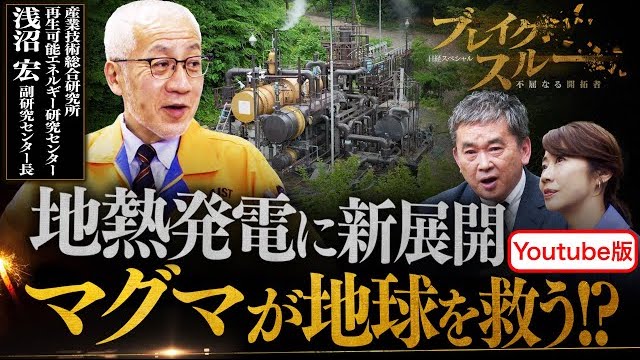TOKYO, Jul 01 (News On Japan) - A large-scale geothermal power project comparable to nuclear power is underway in Japan, with the government and private sector accelerating their efforts toward a green transformation (GX) and renewable energy transition. However, rising power consumption, partly due to the spread of AI, has sent the demand for electricity skyrocketing.

At the same time, solar and wind power, which account for a significant portion of renewable energy, are unreliable for 24-hour stable supply due to weather conditions. Amidst this, there are new developments in geothermal power, which can provide stable 24-hour supply and is one of the world's top resources that Japan boasts but has been difficult to utilize and has not spread widely. Novelist Jin Mayama, who has created works on the theme of geothermal power, delves into the efforts of Japan's leading geothermal developers.
In the wake of the nuclear accident 13 years ago and the historical depreciation of the yen due to Russia's invasion of Ukraine, fuel prices have soared, putting Japan, which relies heavily on imports, in a difficult position. Attention is growing on renewable energy utilizing natural forces. Renewable energy now accounts for over 20% of domestic power supply, and geothermal power, which had been forgotten, is making a comeback.
"We are challenging ourselves with a new method called supercritical geothermal power generation," explains the researcher at the National Institute of Advanced Industrial Science and Technology (AIST), which has 12 locations nationwide working on next-generation technologies like semiconductors and AI. The Fukushima facility, established in 2014 for research on cutting-edge renewable energy following the Great East Japan Earthquake, is Japan's only research institute dedicated to renewable energy.
Geothermal power generation involves tapping into underground water reservoirs heated by nearby magma. This high-temperature water, reaching 200° to 300°, is brought to the surface, where it turns into steam to power turbines, generating electricity. Geothermal power can generate electricity 24/7, unaffected by weather conditions, making it a reliable and continuous source of energy. Japan, a volcanic nation, boasts the world's third-largest geothermal energy potential.
Source: テレ東BIZ















